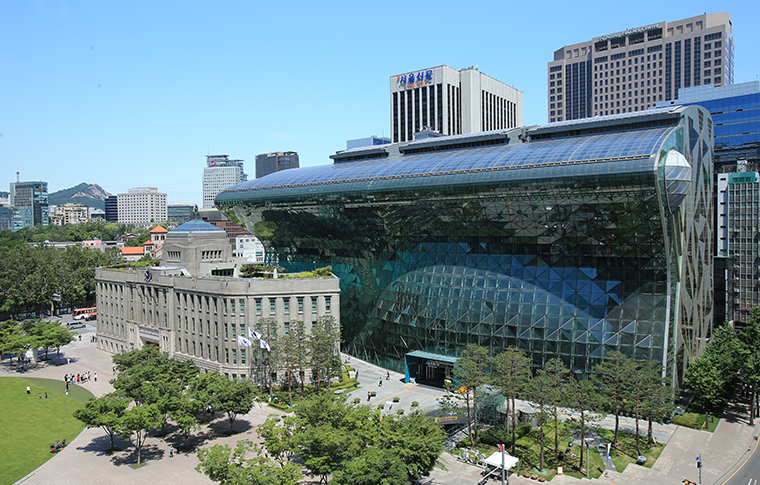
SEOUL, South Korea – Seoul City is set to inject a massive 3.4 trillion won (approximately $3.4 billion USD) over the next five years, stretching until 2030, into a comprehensive plan aimed at transforming the capital into a city where seniors can lead happy and fulfilling lives. Dubbed the "9988 Seoul Project," this initiative, unveiled by Mayor Oh Se-hoon on May 26, is a proactive response to the impending "super-aged society" status that Seoul is expected to reach in July.
The ambitious plan includes a significant expansion of senior care and daycare centers, the creation of 150 new park golf courses, and a substantial increase in tailored senior housing and job opportunities. These measures reflect the city's commitment to ensuring its rapidly growing elderly population can age with dignity and participate actively in society.
Seoul on the Brink of a Super-Aged Society
A society is generally classified as "super-aged" when its population aged 65 or older accounts for 20% or more of the total population. As of April this year, Seoul's 65-and-over demographic already stands at 19.8%, signaling its imminent entry into this demographic phase by July. The projection for 2040 is even more striking, with one out of every three Seoul residents (31.6%) expected to be aged 65 or older.
"The core of the 9988 Seoul Project is to prepare for the coming super-aged society, ensuring that seniors can continue their daily lives happily," stated a Seoul City official. The project’s name, "9988," symbolically represents the aspiration for seniors to live to 99 years old while remaining "palpal" (a Korean term implying vitality and vigor).
Pillars of the 9988 Seoul Project
The 9988 Seoul Project is structured around four key pillars: strengthening community-based care and health systems, ensuring stable retirement lives, promoting social participation and leisure/cultural activities for seniors, and creating an age-friendly urban environment.
1. Enhanced Community-Based Care and Health Systems
Seoul aims to bolster its care infrastructure by constructing public silver care centers utilizing underutilized public land and public contributions from development projects. A particularly innovative approach involves converting struggling private kindergartens into private silver and daycare centers, addressing both the declining birth rate and the rising needs of the elderly.
A significant focus for Seoul City will be to prioritize the securing of silver and daycare centers as public contributions during redevelopment and reconstruction projects. By 2040, the city plans to establish 85 public silver care centers across Seoul and secure 50 daycare centers specifically for seniors with severe dementia. This proactive approach aims to integrate elder care facilities directly into new urban developments, ensuring accessibility and convenience for residents.
2. Ensuring Stable Retirement Lives
With increased life expectancy making economic stability in old age more critical than ever, Seoul is actively supporting employment for seniors. The city plans to create 300,000 public sector jobs for seniors by 2040, accounting for 10% of Seoul's total elderly population. These roles will leverage seniors' experience in areas such as meal support for schools and safety inspections.
Furthermore, the city aims to generate 30,000 private sector jobs for seniors. To encourage private companies to hire older workers, Seoul will offer work environment improvement grants of up to 60 million won (approximately $60,000 USD). Recognizing the financial vulnerabilities of seniors, the city will also strengthen senior financial education programs to protect their assets and actively assist those who fall victim to financial scams.
3. Promoting Social Participation and Leisure/Cultural Activities
Opportunities for maintaining health and enjoying cultural activities will also be expanded. Seoul plans to significantly boost the popularity of park golf, a favorite hobby among active seniors, by increasing the number of park golf courses from the current 33 to 150 by 2040. The city will also expand the "7th Grade Classroom" lifelong learning program, designed to help seniors expand their social networks in a super-aged society. This program offers a range of educational and recreational activities, fostering community and preventing social isolation.
4. Creating an Age-Friendly Urban Environment
Crucial for stable retirement life, the supply of senior-friendly housing will be accelerated. Seoul aims to increase private sector participation in providing customized senior housing by offering incentives such as increased floor area ratio (FAR). To further encourage private developers, Seoul will increase the proportion of "senior-friendly secure housing" (Ansim Housing) that can be sold to 30%. Additionally, if developers secure extra community facilities within their projects, the city will ease the public contribution ratio required for urban regeneration projects.
Key public land sites identified for these customized senior housing developments include the Gaehwasan Station public parking lot (Gangseo-gu), Seocho Firefighting School (Seocho-gu), and the undeveloped school site in Suseo housing complex (Gangnam-gu). Through these efforts, Seoul plans to expand the current 580 units of customized senior housing to an impressive 23,000 units by 2040. This diverse range of housing options will cater to different needs and income levels, ensuring that seniors can find suitable and supportive living environments.
Mayor Oh Se-hoon's Vision
Mayor Oh Se-hoon expressed his commitment, stating, "As we stand on the cusp of a super-aged society, we will strive to ensure that seniors receive systematic community care, allowing all Seoul citizens to live healthily and with dignity into their golden years, staying 'palpal' until they are 99."
The "9988 Seoul Project" represents a proactive and holistic approach to the challenges and opportunities presented by an aging population. By investing significantly in infrastructure, employment, social engagement, and housing, Seoul aims to set a global example for creating a truly inclusive and senior-friendly urban environment. The success of this ambitious plan will depend on consistent implementation and collaboration between government, private sectors, and community organizations, all working towards a shared vision of a vibrant and healthy senior population.
[Copyright (c) Global Economic Times. All Rights Reserved.]



























